Japanese film-maker Iwai Shunji talks about his first English language film Vampire, starring Kevin Zegers and Keisha Castle-Hughes, currently in post production.
Japanese filmmaker Iwai Shunji is perhaps best known for his seminal film on romance and remembrance Love Letter which influenced a generation of youths across Asia in the mid- to late 90s.
Fine Line Features released the highly popular film in the US with the new title When I Close My Eyes (1998). With a background in directing music videos and TV dramas, the prolific director’s distinctive and innovative visual style and musical sensibilities also marked his other works including the high school cyber drama All About Lily Chou-Chou. He recently participated in the omnibus film New York, I Love You with other directors such as Fatih Akin and Mira Nair. Currently, he is working on the post-production for his first English-language film Vampire, starring Kevin Zegers, Keisha Castle-Hughes and Amanda Plummer.
What made you decide to do a vampire film?
The original story came from a script about a criminal I wrote almost seven years ago. But I got to thinking, ‘What if the criminal is not just a serial killer?’ I came up with the idea of a vampire who is thirsty for blood but reluctant to kill. He ends up helping girls who want to commit suicide. They don’t want to die alone, so they die with him. It’s a complicated story. On the one hand, he’s serial killer, but on the other hand, he’s also helping them out, and in the process, he develops relationships with them.
How did the project come together?
I thought up Vampire two or three years ago and rewrote the script in a couple months. It was not hard. But the storyboards took about half a year to get done. Of course, it helped a lot to have them when we were getting financing.
Fortunately, I had a good manager in Tim Kwok from Convergence, who is a producer with me on the film, and a great casting director in Brad Gilmore, who brought us these wonderful actresses and Kevin Zegers, who was in particular great to work with and very devoted to the project. All the time he was acting, he was also very thoughtful of the production, and I think he has the potential to be a good director some day, too.
The budget was $3m and the film is financed and produced by Rockwell Eyes in conjunction with Convergence Entertainment. The financing arrangement included Rockwell Eyes handling the distribution rights to the Middle East, Hong Kong, Taiwan, Singapore, Korea and Japan. Fortissimo is handling sales for the rest of the world and co-representing North American rights with Rockwell Eyes.
Why did you want to do this film in English? Did you have any difficulties directing as it’s not your native tongue?
I had studied English for almost 10 years by the time I graduated from university, and I understand it pretty well, but have a harder time speaking it. I think Japanese people are the worst English speakers in Asia. The more I study, the harder it seems to get. But I’m interested in working with actors not only from Japan but from all over the world. So Vampire is experimental in that sense. I like to think of myself as kind of a scientist. I like to research animals and how they survive, and find the similarities between people and their behavior, too. I’m not good at sticking to one place all the time, by nature.
So basically I want to shoot something or someplace new every year. Of course, Japan is the most important place to me because I was brought up there and I am very familiar with it, and it has provided me with the experience I needed to do this project as well. But if I stay only in Japan, I feel like it’s like wasting something.
What was the production like?
The pre-production took one month and the production another month. We shot on location in and around Vancouver. This was not my first time shooting in North America because I had shot something for TV five or six years ago in the US, but it was my first time shooting a feature film. In some ways, it was better than shooting in Japan. Japanese guys can be difficult because they worship the traditional way.
I prefer the rational or reasonable way, which sometimes they find quite hard to understand. The only problems we had were with English once in a while, but I had good assistants and translators. Most of the staff and crew were from North America, and we flew in three camera assistants. We used the Canon EOS 5D Mark 2 and the RED cameras, and I shot the majority of the film myself.
Any advice for other non-native English-speaking filmmakers? Would you want to do another English-language film?
When you’re not a native speaker, it’s important to have good partners who not only speak the language well, but also have a good understanding of the movie script and how the dialogue should be.
But I think the language and behavior of people is very similar and we have a lot of things in common. Even though we might come from different cultures and have different histories, people are still people.
Having done Vampire, I think I would like to keep doing other films with actors from other different countries, too. Korean, Chinese, European, South America, African, from the Middle East and all over the world.




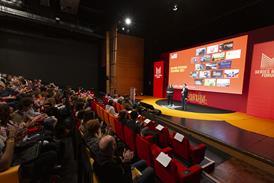
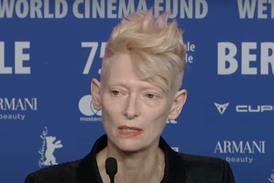
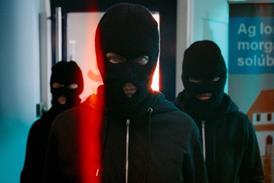
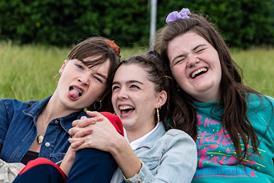





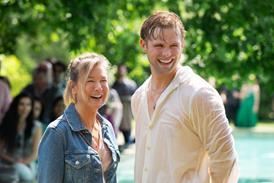
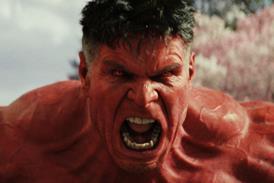

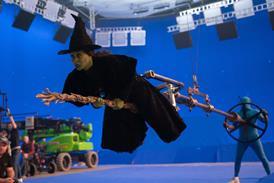
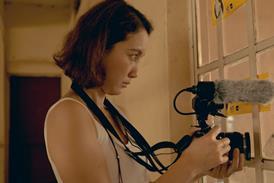




No comments yet